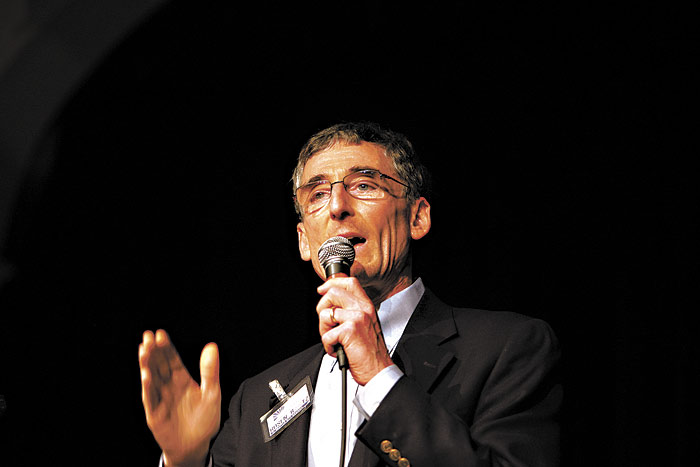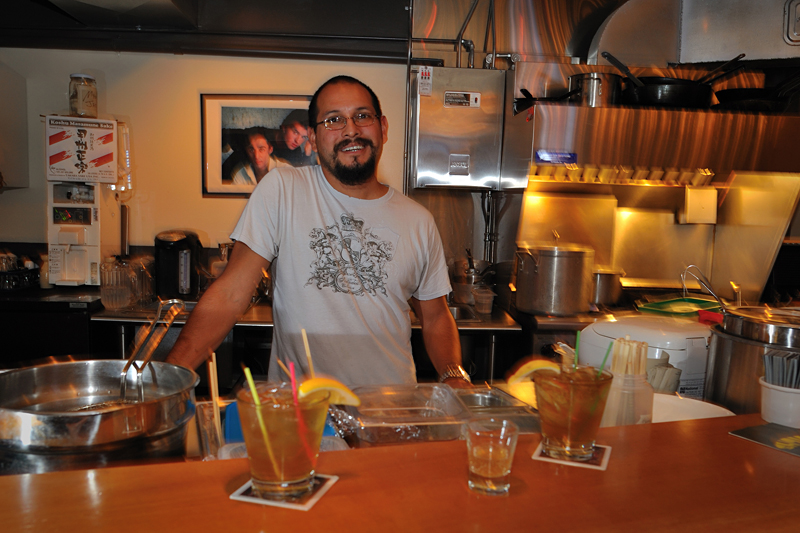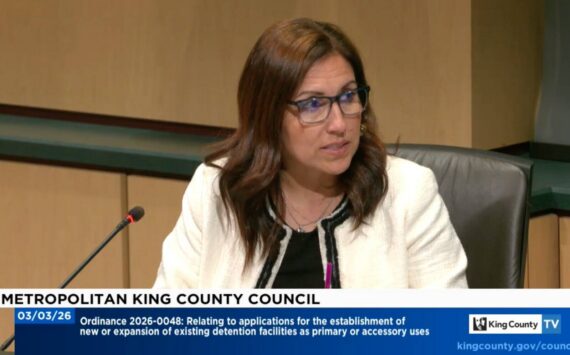Robert Rosencrantz doesn’t have the polish of most politicians. His shirts aren’t always ironed, his glasses are askew. And he has a quirky way of making a splash. At an event hosted by Great City in June, city council candidates were asked to make a dish with local ingredients. Most of the candidates arrived with quiches featuring farm-raised eggs, local tomato salads, and beans from Pike Place Market. But Rosencrantz, running in the Nov. 3 general election to replace the retiring Richard McIver, had no such trappings. He brought a bowl of Washington cherries he’d seen at Safeway for $1.88 a pound and snagged a cup for the pits from competitor David Miller, who was serving gumbo. Rosencrantz laughingly argued that it showed fiscal discipline and creativity.
A landlord who owns four apartment buildings, Rosencrantz is taking a third crack at getting elected to city council, having lost in the 2003 and 2005 primaries. He has since cultivated a substantial and deep-pocketed donor base, including longtime politico Ruth Woo and Bruce Nordstrom, board chair of a department store you may have heard of. Now he’s outraising Mike O’Brien, his competitor for the seat—with almost $168,000 to O’Brien’s $89,000—and is second only to financial juggernaut Sally Bagshaw for overall funding in the city council races. Rosencrantz will need every penny of his ever-expanding war chest as he tries to close a substantial vote gap in the primary, in which O’Brien took 34 percent of the vote to Rosencrantz’s 21.
Rosencrantz, like outgoing Councilmember Jan Drago, got his start owning a Häagen-Dazs ice cream store in Beaverton, Ore. He jumped into the apartment business in 1984 with Coldwell Banker, eventually buying his own properties in 1997. He has also served as an advisor or board member for organizations like the organic and local-food advocacy group Seattle Tilth and the Church Council of Greater Seattle’s Interfaith Task Force on Homelessness. From 2000 to 2003 he managed real-estate acquisitions for the King County Housing Authority, and in 2004 he served as Executive Director of the Northwest Association for Housing Affordability.
Such endeavors have afforded Rosencrantz the opportunity to cross paths with a variety of public officeholders. County Councilmember Bob Ferguson and former City Councilmember Peter Steinbrueck signed on as early endorsers of Rosencrantz’s current run, and now he’s got a long list of local officials on board with his campaign. And then there are the people who just like the guy. Scott Shapiro, Managing Director of the development company Eagle Rock Ventures, met Rosencrantz when they joined the same Saturday-morning running group. “I just know him to be an extremely hard-working and knowledgeable person,” says Shapiro, who early in Rosencrantz’s campaign donated the maximum amount allowed, $700. “His being a small business owner, I think, gives him perspective and helps him understand the value of taxpayer dollars.”
Carol Backus and her husband, both retirees, together gave Rosencrantz $1,400 last March. Backus says they aren’t close, but her husband knew Rosencrantz as a teenager. “We just believe that he really, really wants to do public service,” she says. “I think in his own personal life he’s made enough money that he isn’t driven by money.”
That kind of enthusiasm isn’t enough to win, however; both Shapiro and Backus gave to Rosencrantz’s previous failed council runs. In 2003, Jean Godden kept him from taking on Judy Nicastro in the general election by 175 votes. Two years later he ran in a three-way primary against McIver and Dwight Pelz, managing 29 percent of the vote to Pelz’s 33 and incumbent McIver’s 39. But this year Rosencrantz made it through a crowded primary. And now he’s getting a big bump thanks to O’Brien’s staunch anti-tunnel stance.
Rosencrantz is no tunnel-lover himself, having said in August that he would have rather seen the city repair the existing viaduct. Still, he says, “Although replacing the viaduct with a deep-bore tunnel was not my first choice, it does have identified funding sources and it is moving forward.” That hesitant support was enough to convince one of Rosencrantz’s primary competitors, Jordan Royer, to back his campaign. The Alki Foundation, the Greater Seattle Chamber of Commerce’s fundraising arm, also endorsed Rosencrantz. (In a press release accompanying the announcement, the tunnel isn’t specifically cited as the reason for any of the Foundation’s endorsements, but the Chamber actively lobbied for the structure during the past legislative session.)
But while money and support from downtown business interests helped Bagshaw capture 51 percent of the primary vote in her race to replace Drago, this year such a dynamic hardly guarantees victory. Just ask Greg Nickels.
Rosencrantz’s lack of sheen comes through when the subject moves away from housing, his area of expertise. At a forum on public safety at the Rainier Valley Cultural Center, Rosencrantz struggled with a question on whether or not he supported the city’s “Don’t Ask” immigration policy, which prohibits police officers and city employees from asking someone’s immigration status when they report crimes or seek help from social-service agencies. He gave a wandering answer about the importance of people being able to go to the police without fear of being deported, but added that they should have to provide their immigration status if they are part of an investigation into gun-related crimes. A few people in the audience clapped politely as he wrapped up, but it was mostly crickets.
Additionally, NARAL Pro-Choice Washington endorsed O’Brien after Rosencrantz declined to respond to the group’s questionnaire. Rosencrantz says that he supports choice, but believes there should be a conscience exemption for doctors and nurses who don’t want to perform abortions.
Still, if anyone is determined to make the third time a charm, it’s Rosencrantz. On the campaign trail, he often tells a story about his four losing attempts at the National Junior Racewalking Championship. It wasn’t until his fifth try in 1975 that he finally won—setting a record, he claims.
“I got used to failing early and often,” he says. But Rosencrantz concedes that if he doesn’t win this time, he doesn’t plan to give the city council another shot. “The more diplomatic answer is I’m not looking there. I’m simply running to win right now.”







